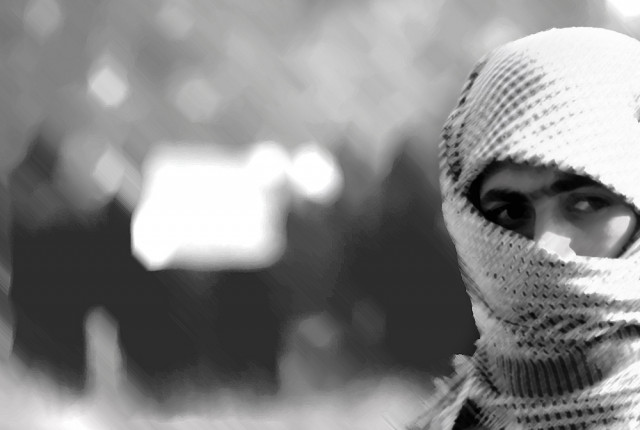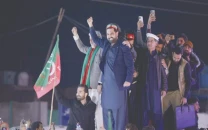Psycho-cognitive therapy: Town discovers new tools to revert terrorists
Internment centre uses unique methods to de-radicalise former militants.

The town, which has often been at the forefront of militancy, has decided to face the menace in an unusually unique way.
Psychological and cognitive therapy, it seems, is paving the way to rehabilitate men who were once fighting the war. At one unusual facility in Tank, the motto remains: If they were made to be this way, they can be turned back too.
At an internment centre, thirty-eight men of varying age groups, dressed in brownish khaddar, anxiously wait to taste freedom after having been kept in detention for almost eleven months.
Although not “hardcore” militants these men are categorised as “grey” —ideologically inclined towards militancy.
After walk around the facility, one can safely conclude that indoctrination alone was never enough to tilt their thinking but sociological factors along with distortion of facts were the main catalysts for their lopsided views.
While most of the men, part of the De-Radicalisation and Emancipation Programme (DREP), are reluctant to speak about their activities prior to being detained, they are more focused on the prospects of their “bright” future.
Abdullah, a taxi driver who belongs to Shava, North Waziristan Agency, says the situation in his region is still not good. When asked why he was brought to this rehabilitation centre, he shies away with a chagrined smile and says, “My mind has been cleared now. We’ve been taught what Islam really means, we had been misled before”.
Abdullah now aspires for a new beginning and wants to start a new life. “I have a son and three daughters and I want to focus on their future now,” he says with sincere determination in his sparkly eyes.
Others share similar views. “My elder brother was working for a banned organisation,” says Rashid Anwar, in his early 20s. “I tried to stop him in the beginning...” but his voice trails off in uncomfortable distance — as if he were trying to forget the morbid realities of his horrific past.
The psychiatrist in this facility is quite confident that the men will not revert back to their “previous practices”.
“Their ideas were based mostly on hearsay and were not logically coherent,” he argues. “We’ve treated them with various cognitive methods and I am a 100% sure they wont revert back.”
Officials of the facility say that almost 50% of the detainees at this internment centre were not aware of the fundamentals of Islam and could not read the Quran but were ideologically inclined towards militancy instilled in their minds on the basis of religion.
The internment centre is not only de-radicalising these men, it is going one step beyond that. It also provides these men with basic training in technical fields like painting, handling electrical appliances, plumbing and tailoring — skills which will help them earn them a living after they leave the centre.
The programme – which began in October 2011 – has released its first batch of detainees and the plan is to continue and treat people because it has a “100% success rate” so far, according to the centre officials.
“De-radicalisation is the only way back after what the country has been through,” says Lt General Khalid Rabbani, the corps commander of Peshawar, explaining that a handful of people have stigmatised religion. “Locking up people is not a solution,” he asserts.
At a ceremony where tribal elders and relatives of these men have gathered and guaranteed to take them back home after their treatment, families hug their loved ones and enjoy a feast with patriotic songs played in a humming tone.
While the ceremony goes on, a bomb blast rips through a nearby city leaving 13 people dead and more than 30 injured. A day later, three suicide bombers storm a nearby police station and kill four policemen and wound six others.
Incidents like these in the tribal belt serve as a stark reminder of the fact that de-radicalisation might be the only real hope to bring peace in a society where militant ideology sustains itself like a prominent reality.
Published in The Express Tribune, February 27th, 2012.



















COMMENTS
Comments are moderated and generally will be posted if they are on-topic and not abusive.
For more information, please see our Comments FAQ